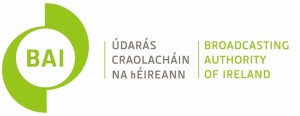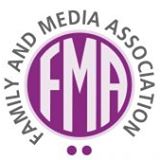
By Ann Marie Foley - 03 February, 2015

The Broadcasting Authority of Ireland (BAI) has revised its Code of Programme Standards to allow for diversity in what it calls ‘contemporary Irish society’.
Michael O’Keeffe, Chief Executive, BAI, said: “Freedom of speech and freedom of expression are issues that have been very much in the news in recent times. Revising a code that deals with programme standards will always be a challenge, not least because there is no absolute, universally shared sense of what appropriate standards are or how they should be observed.”
He added, “There is no right not to be offended, but there is a right not to be harmed by what is broadcast.”
Michael O’Keeffe explained that after reviewing the existing Code of Programme Standards BAI changed the structure and wording of the code to make it more ‘user-friendly’ and understandable.
“The code now prioritises a principles-based approach but also provides specific guidance to broadcasters as to how these principles might be fulfilled,” he said.

Donal O’Sullivan-Latchford of the Family and Media Association, which has years of experience in fostering high standards in the media, told CatholicIreland.net that the new code is more principle than rule-based.
“That might give more flexibility, but it also becomes a movable feast and it could be more susceptible to the views of those who are upholding it,” he said.
He added that if one likens the BAI’s role to being a ‘referee’ for fairness (in particular its compliance committee) then it needs rules which can be upheld and which allow the ‘referee’ to stand firm.
“The rules are not as clear cut as they should be (in the code), so the referee can be more creative in the interpretation and they are also more susceptible to pressures and the views of others,” he said.
“Decisions that are made on broadcasting come under a lot of pressure. So you need robust rules and referees that will stick to them.”
He also pointed out that the new code does not include news and current affairs programmes which come under their own code which came into effect in July 2013.
Before the latest code was formulated there was a public consultation process, and a range of submissions was received from broadcasters, representative organisations and members of the public.
One of the submissions was by Donal O’Sullivan-Latchford.
In it he stated that he wanted to welcome the positive but: “.. the Draft Code of Programme Standards does not contain the words ‘truth’ and ‘beauty’. These should be the basis of all broadcasting. In fact, there appears to be an uneasy tension between ‘relativism’ and ‘truth’.”
“To choose relativism instead of truth is not to sit on the fence in a fair and balanced way but is, in fact, taking sides against the Truth and ultimately against the human beings who are the viewers and listeners,” he said.
He told catholicIreland.net that if the truth is not upheld, it is in nobody’s interest because truth defends people.
He highlighted the need to tackle the move away from truth and “objective reality” and towards “diversity, taste and interest.”
He stated that there is a need to identify what has value rather than what people feel.

The Broadcasting Act 2009 requires the BAI to prepare codes and rules, and to review their effect. The current code has been in operation since 2007, and the new Code of Programme Standards (COPS) will come into effect on 1st March 2015.
The seven guiding principles underpinning the code are:
respect for community standards;
importance of context;
protection from harm;
protection of children;
respect for persons and groups in society;
protection of the public interest;
and respect for privacy.
Each principle is accompanied by a list of requirements for broadcasters.